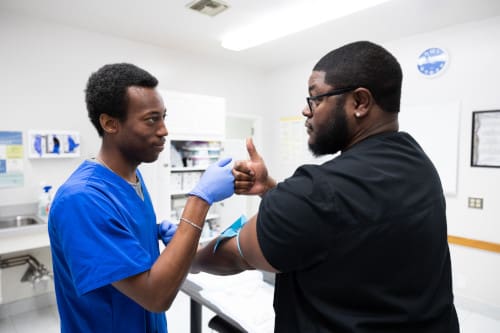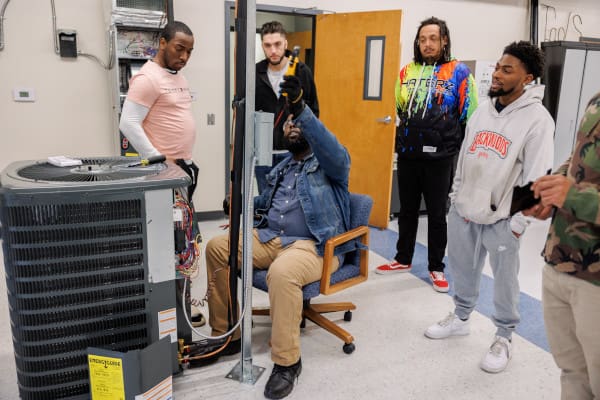Filter by category:
 Becoming a Wind Turbine Technician Trades & Industry You might have heard of a wind turbine technician - or more likely, seen them climbing one of those vertical towers. But what exactly are wind turbines and how do they benefit the world? And… Read more
Becoming a Wind Turbine Technician Trades & Industry You might have heard of a wind turbine technician - or more likely, seen them climbing one of those vertical towers. But what exactly are wind turbines and how do they benefit the world? And… Read more Making Sense of Medical Assistants Trades & Industry A student in the medical assisting program at Centura College practices administering injections. A career in medical assisting can open the door to working alongside doctors and nurses within a variety of healthcare facilities and… Read more
Making Sense of Medical Assistants Trades & Industry A student in the medical assisting program at Centura College practices administering injections. A career in medical assisting can open the door to working alongside doctors and nurses within a variety of healthcare facilities and… Read more HVAC Schooling: What is It? Student Development, Trades & Industry Upon graduation, HVAC students will earn important industry certifications to prepare for their career. Many have heard the term ‘HVAC,’ but what exactly does it mean? HVAC, or Heating, Ventilation, and Air Conditioning, centers around… Read more
HVAC Schooling: What is It? Student Development, Trades & Industry Upon graduation, HVAC students will earn important industry certifications to prepare for their career. Many have heard the term ‘HVAC,’ but what exactly does it mean? HVAC, or Heating, Ventilation, and Air Conditioning, centers around… Read more Centura College Enhances Leadership at Campuses New Campus Executive Directors at Centura College bring a combined 88+ years of experience in the industry. Centura College announces an enhanced leadership structure within its school system that allows for new opportunities, experience, and… Read more News
Centura College Enhances Leadership at Campuses New Campus Executive Directors at Centura College bring a combined 88+ years of experience in the industry. Centura College announces an enhanced leadership structure within its school system that allows for new opportunities, experience, and… Read more News









